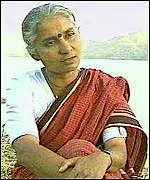Secret of Success-A full life is not necessarily a long life

Three years ago the eight year old daughter of a friend died in a freak accident at school. My friend was devastated and I could not think of any wise words that might console him. As the weeks rolled by my friend slipped into an ever deeper sense of despair, and nothing anyone said seemed to lift his spirit.
After a few months time he went out of town on a business trip, and on the train ride back home he engaged in a conversation with the woman sitting next to him. The woman sat there and nodded her head often as my friend talked about the death of his daughter. He reported to me that he had the sense of talking and talking and talking, until he finally felt like he had nothing more to say.
As my friend came to a natural state of rest, the woman nodded her head one more time as she took a deep breath, and then said the following, "I can very much feel your pain, and I understand that the loss of your child must be devastating. At the same time," she said, "I wonder if your pain would not be lessened if you celebrated the life of your daughter.
"You told me about your daughter's sense of awe the first time you took her to the ocean, and how you carried her in your arms as you waded out into the water. You also spoke about the many times she sat on your lap and told you about the magical adventures she had during the course of her day. Perhaps the sweetest story you shared was how you told your daughter every night how much you loved her as you tucked her into bed.
"I am wondering," the woman said, "What is it that leads you to believe that you and your daughter did not live a glorious fulfilling life together? Is it because she died at eight years old and not at eighty? Certainly it would seem that the quality of one's life is not tied to the length of one's life. I would suggest that you and your daughter did perhaps live a full and complete life together. She just didn't live as long as you had hoped for and expected."
As the train neared the station the woman continued speaking, "I am fifty two years old, and in looking back on my life I don't feel I have shared with anyone, the depth of experience and love you and your daughter had together. On one hand this makes me deeply sad. On the other hand, it helps me to realize that with the time I have left, I can indeed strive to live a complete and fulfilling life. This is the realization that your experience has helped me to understand, and for this wonderful gift I thank you deeply."
The woman smiled as she stood up, preparing to exit the train. "None of us know how long we have to live. We don't seem to have all that much control over the length of our life. The quality of our life on the other hand, we can indeed ensure on a daily basis. It is never too soon to begin to enjoy and fully appreciate the life we do have, right here and now."









